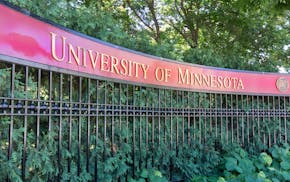In the past half century, the population of Rochester has doubled from right around 50,000 residents to today's population of more than 100,000.
Now, an ambitious new plan called the Destination Medical Center (DMC) will combine the efforts and contributions from players in the public and private sectors with a goal of creating a similar size increase in population in half the time. The DMC project has set a goal of 45,000 new jobs created in the next two decades in the city of Rochester.
The plan takes a holistic approach to looking at not just how to create new jobs, but what steps the city will need to undertake to support such growth in a sustainable manner.
One area that will need attention is energy. How do you power a city with fifty percent more residents?
Conservation Minnesota recently sent a survey to the residents of Rochester to gauge their opinion of energy topics that impact their daily lives.
The two questions that received the most support were about city initiatives to encourage walking, biking, and mass transit as a way to cut fuel use and pollution, and another about the city working to support efforts to increase the statewide target for the percentage of renewable energy that is used in our overall energy production.
Nearly 70 percent of Rochester residents supported the decision by Rochester Public Utilities to host the Neighborhood Energy Challenge which helped residents not only better understand their electricity usage, but also identify opportunities to become more efficient. A similar percentage supported an idea that has been floated that would see the city tap renewable energy sources to provide any increased future energy needs.
There was also strong support for moving the city, know for its health care industry, away from using coal as a primary source for electricity. Burning coal has been linked to increased mercury in lakes, asthma, and heart disease.
It is clear that the people of Rochester are on the cutting edge of community growth planning, and our survey shows they recognize a key component of any such plan is wise energy consumption. We look forward to seeing how community leaders use clean, healthy energy for its residents and businesses to reinforce the city's worldwide reputation as a transformative leader in healthcare.

Going to the Timberwolves or Twins games tonight? Here's how to get there, and maybe even avoid traffic
Focusing on bringing football film into frame
